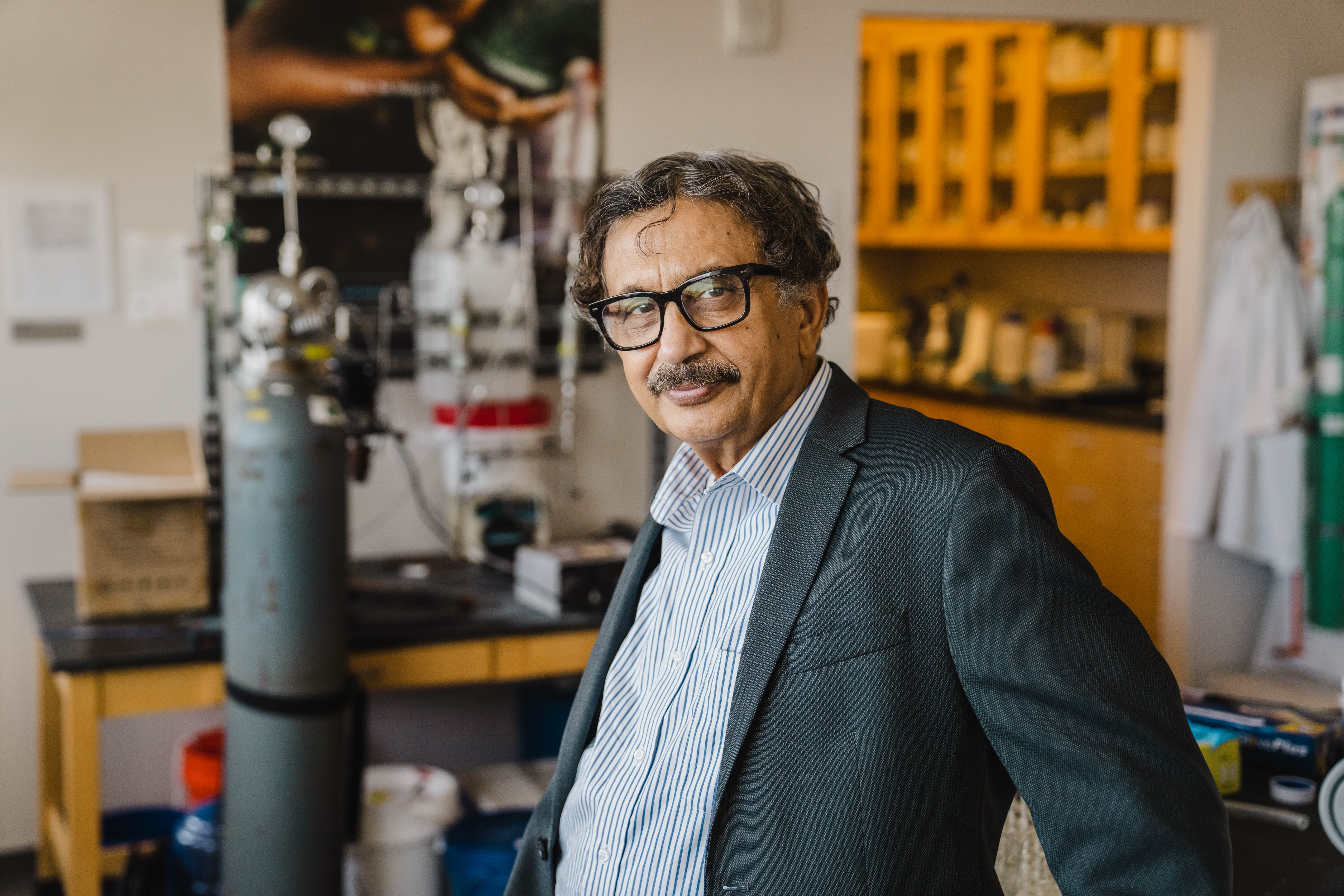Date: Wednesday, October 25, 2023
Time: 9:30-10:30AM
Location: Health Science Technology Building (HST), Forum Room 101
This event features Arup SenGupta who will talk about "From Enhancing Access to Safe Water to Mitigating Perils of Climate Change", as part of the Lehigh University Chemical and Biomolecular Engineering's Fall 2023 Colloquium Seminar Series.
Abstract
The elevated atmospheric CO2 concentration resulting from anthropogenic emissions is singularly responsible for global climate change and viewed as the worst existential threat confronting humanity today. Besides replacing fossil fuels with renewable energy and emission control, direct air capture (DAC) of CO2 from the ambient atmosphere has emerged as a potential strategy for achieving net-zero greenhouse gas emissions by 2050 as recommended by the Intergovernmental Panel on Climate Change (IPCC). While the DAC implementation is geographically very flexible, the ultra-dilute atmospheric CO2 concentration (~ 400 ppm) poses a formidable hurdle for high CO2 capture capacity using sorption-desorption or CO2 dissolution processes with alkaline solutions. At Lehigh University in Pennsylvania, we have developed a hybrid sorbent enabling a high CO2 sorption capacity (> 5.0 moles CO2 per kg sorbent) that is nearly 2-3 times greater than other sorbents reported to date in the open literature. Upon exhaustion, this sorbent is amenable to efficient regeneration by hot water or steam. This study reveals for the first time that sea water has the potential to be used both as a regenerant and a sink for direct air capture of CO2 at ambient temperature.
It is well recognized today that lack of access to safe water drives inequality and perpetuates the cycle of poverty. Although unknown nearly three decades ago, natural arsenic contamination of groundwater emerged as a major global crisis affecting over fifty countries. The adverse health effects resulting from drinking of arsenic contaminated groundwater are most apparent in South and Southeast Asia in countries like Bangladesh, India, Cambodia, Nepal, India, Laos and China where over 200 million people, according to World Health Organization (WHO), are severely threatened with arsenic-inflicted health impairment. During the last 25 years, the speaker and his students aided by many international partners developed and implemented regenerable, reusable arsenic-selective sorbents both in the developed and developing world. Well over two million people around the world including the USA and India currently drink arsenic-safe water through use of these sorbents.
About the Speaker
Professor Arup K. SenGupta is the P.C. Rossin Professor in the Department of Civil and Environmental Engineering and Department of Chemical and Biomolecular Engineering at Lehigh University. SenGupta is internationally recognized for advancing and expanding the field of ion exchange science and technology, and applying it for development of sustainable technologies and new materials. SenGupta is the author of the book ‘Ion Exchange in Environmental Processes’ published by Wiley & Sons. The book was translated in Chinese. He was the lead faculty member to introduce all three academic programs - PhD, MS and BS in environmental engineering – in Lehigh University. SenGupta has been the recipient of Lehigh University’s Libsch Research Award in 1995 and Hilman Faculty Award in 2013 for outstanding accomplishment through impact of research.
For his research and scholarly contributions, SenGupta received many national and international awards including: 2004 International Ion Exchange Award at the university of Cambridge, England; 2009 Lawrence K Cecil Environmental Award from the American Institute of Chemical Engineers (AIChE); and 2012 Intel Environmental Award for ‘technology benefiting humanity’ and the 2007 Grainger Challenge Award for Sustainable Water treatment from the National Academy of Engineering, to name a few. SenGupta is a fellow of AIChE, ASCE and NAI (National Academy of Inventors).
Department/Program:

